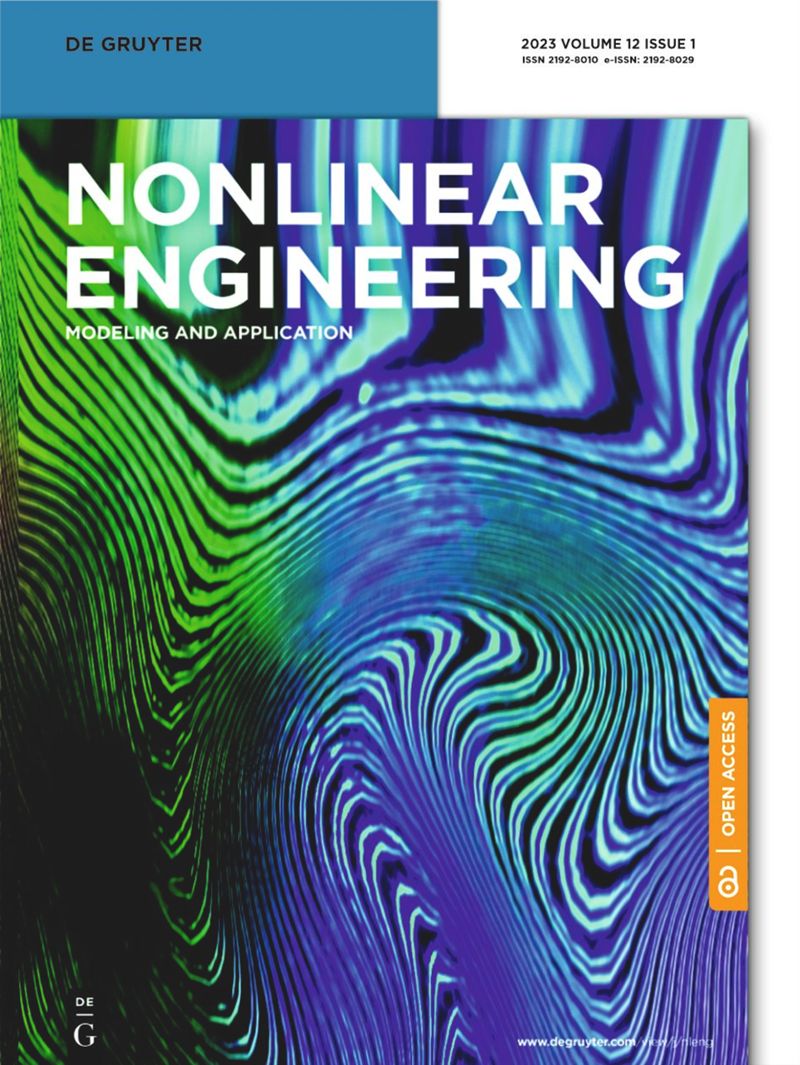Dynamical aspects of transient electro-osmotic flow of Burgers' fluid with zeta potential in cylindrical tube
IF 1.5
Q2 ENGINEERING, MECHANICAL
引用次数: 2
Abstract
Abstract In this article, we consider the flow of a Burgers’ fluid of transient electro-osmotic type in a small tube with a circular cross-section. Analytical results are found for the transient velocity and, electric potential profile by solving the Navier–Stokes and the linearized Poisson–Boltzmann equations. Moreover, these equations are solved with the help of the integral transform method. We consider cases in which the velocity of the fluid changes with time and those in which the velocity of the fluid does not change with time. Furthermore, special results for classical fluids such as Newtonian, second grade, Maxwell, and Oldroyd-B fluids are obtained as the particular cases of the outcomes of this work and that these results actually strengthen the results of the solution. This study of the nonlinear problem of Burgers’ fluid in a specified physical model will help us to understand the behavior of blood clotting and the block of any kind of problem in which this type of fluid is used. The solution of the complex velocity profile of Burgers’ fluid will help us in the future to solve the problems in which this transient electro-osmotic type of small tube is involved. At the end, numerical results are shown graphically that can help us to understand the complex behavior of the Burgers’ fluid, and also the analysis of the Burgers’ fluid shows dissimilarity with other fluids that are considered in this work.具有zeta势的Burgers流体在圆柱管内瞬态电渗透流动的动力学方面
摘要本文考虑瞬态电渗透型Burgers流体在圆截面小管内的流动。通过求解Navier-Stokes方程和线性化泊松-玻尔兹曼方程,得到了瞬态速度和电势分布的解析结果。并利用积分变换法对这些方程进行了求解。我们考虑流体速度随时间变化的情况和流体速度不随时间变化的情况。此外,对于经典流体,如牛顿流体、二级流体、麦克斯韦流体和奥尔德罗伊德- b流体,得到了特殊的结果,作为本工作结果的特殊情况,这些结果实际上加强了解的结果。在一个特定的物理模型中研究伯格流体的非线性问题,将有助于我们理解血液凝固的行为,以及使用这种流体的任何一种问题的阻塞。伯格流体的复速度分布的求解将有助于我们将来解决这种瞬态电渗透型小管所涉及的问题。最后,数值结果以图形形式显示,可以帮助我们理解Burgers流体的复杂行为,并且对Burgers流体的分析显示了与本工作中考虑的其他流体的不同之处。
本文章由计算机程序翻译,如有差异,请以英文原文为准。
求助全文
约1分钟内获得全文
求助全文
来源期刊
CiteScore
6.20
自引率
3.60%
发文量
49
审稿时长
44 weeks
期刊介绍:
The Journal of Nonlinear Engineering aims to be a platform for sharing original research results in theoretical, experimental, practical, and applied nonlinear phenomena within engineering. It serves as a forum to exchange ideas and applications of nonlinear problems across various engineering disciplines. Articles are considered for publication if they explore nonlinearities in engineering systems, offering realistic mathematical modeling, utilizing nonlinearity for new designs, stabilizing systems, understanding system behavior through nonlinearity, optimizing systems based on nonlinear interactions, and developing algorithms to harness and leverage nonlinear elements.

 求助内容:
求助内容: 应助结果提醒方式:
应助结果提醒方式:


